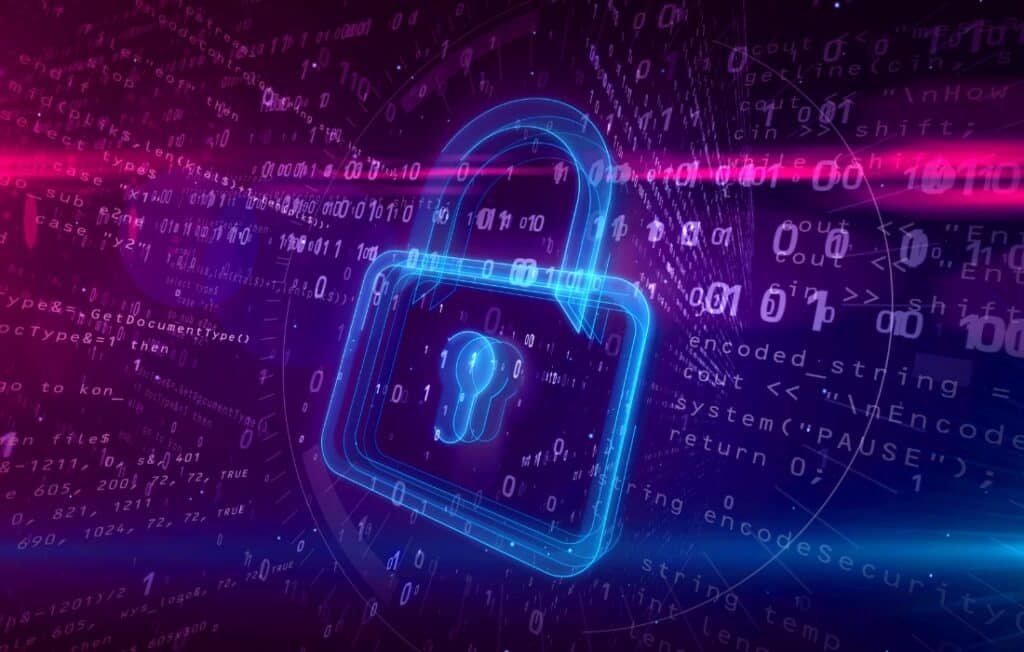In Mountain View, technology is changing many things. One of those things is how legal papers are given to people. This is called “process serving.”
Because of the impact of Technology on Process Serving in Mountain View, it’s becoming faster and wiser. It’s interesting to see how computers and gadgets help in this job.
Technology on Process Serving: Evolution of Digital Summons and E-Service
With the digital age in full swing, process serving has adapted to incorporate e-service and digital summons. This innovation allows legal notices to be sent electronically, often resulting in quicker, more efficient service. Not only does this reduce the physical burden and time delays associated with traditional service methods, but it also opens up new avenues for reaching recipients.
| Feature | Traditional Service | Digital E-Service |
| Delivery Speed | Days to weeks | Instant to hours |
| Cost | Variable (higher) | Generally lower |
| Environmental Impact | High (paper, fuel) | Minimal |
| Accessibility | Limited | Anywhere with internet |
| Tracking | Limited | Enhanced with digital receipts |
| Global Reach | Challenging | Simplified |
This table contrasts the features of traditional service methods with digital e-service, highlighting the efficiency and accessibility advantages of the latter.
Geolocation Tools: Enhancing Process Server Efficiency
The introduction of geolocation tools has been a game-changer for process servers. By utilizing GPS technology, servers can now pinpoint the exact location of recipients and strategize optimal routes. This technological aid drastically minimizes the chances of missed deliveries and maximizes the productivity of each service attempt.
- Precision– Geolocation ensures that servers are at the right place and time.
- Optimized Routes– Servers can now plan the most efficient routes, saving time and resources.
- Safety– Knowing the precise location can prevent potential dangers in unfamiliar areas.
- Real-Time Tracking– Clients can monitor the server’s progress in real-time.
- Data Logging– Every visit is documented, providing a comprehensive record of attempts.
- Enhanced Accountability– Geolocation data can verify a server’s performance and route adherence.
Mobile Applications: Streamlining Service of Process

The rise of mobile applications tailored for process serving has transformed the industry. These apps often provide an all-in-one solution, from document management to route planning. Such tools, designed with the unique needs of process servers, offer unparalleled convenience and efficiency.
- Instant Updates– Mobile apps allow servers to update case statuses on the go instantly.
- Digital Documentation– Eliminates the need for physical paperwork, reducing chances of loss or damage.
- Integrated Features– Many apps combine geolocation, scheduling, and reporting in one platform.
- Customizable Alerts– Servers can receive real-time notifications related to their cases.
- Secure Communication– Encrypted channels ensure the confidentiality of sensitive information.
- User-Friendly Interfaces– Designed for ease of use, promoting efficient workflows.
Digital Record Keeping: Ensuring Accuracy and Authenticity

Preserving the integrity and authenticity of service records is paramount in the legal process. Digital record-keeping systems have emerged as reliable tools to store, manage, and retrieve vast amounts of data with minimal risk of tampering. This digitization has ushered in a new era of accountability and transparency in process serving.
- Data Backup- Digital systems provide multiple backup options, guarding against data loss.
- Tamper-Proof– Advanced encryption techniques protect data from unauthorized alterations.
- Efficient Retrieval- Quick search options enable rapid data access.
- Space Saving- Eliminates the need for bulky physical storage systems.
- Integrated Systems- Many platforms offer integrated solutions, from documentation to billing.
- Regulatory Compliance- Digital record-keeping often aligns with regulatory standards, ensuring legal compliance.
Use of Drones: Revolutionising Surveillance and Service
The adoption of drone technology has offered a fresh perspective on surveillance and service. Drones can access hard-to-reach locations, capture aerial footage, and even serve documents in specific scenarios. While still in its infancy, this technology holds significant promise for reshaping the landscape of process serving.
- Aerial Surveillance– Drones provide a bird’s-eye view, capturing comprehensive footage of locations.
- Safety– Drones can access potentially hazardous areas without putting servers at risk.
- Efficiency- Speedy drones can reduce the time taken for specific tasks.
- Innovation– Some firms experiment with drones for direct service of documents.
- Cost Savings– In specific scenarios, drones may be more economical than traditional methods.
- Legal Considerations– As drone usage increases, legal frameworks are evolving to address associated concerns.
Virtual Reality (VR) and Augmented Reality (AR) in Training Process Servers
VR and AR technologies are reshaping the training paradigms for many industries, including process serving. By immersing trainees in realistic scenarios, these technologies can offer hands-on experience without real-world risks. This can result in more competent and prepared process servers entering the field.
- Realistic Scenarios– Trainees can experience challenging situations in a controlled environment.
- Skill Enhancement– Practical VR and AR sessions can enhance decision-making and problem-solving skills.
- Safety– Virtual training eliminates the risks associated with real-world training.
- Interactive Learning– Engaging interfaces make learning more captivating and compelling.
- Customized Training Modules– Sessions can be tailored to address specific challenges or requirements.
- Cost-Efficient- Virtual training can be more economical than traditional methods over time.
Security Concerns: The Double-Edged Sword of Digital Transition

While digital transformation offers numerous advantages, it also introduces potential security threats. Ensuring the confidentiality and integrity of sensitive data becomes paramount. Firms must strike a balance between leveraging new technologies and ensuring that they remain shielded from cyber threats.
- Data Breaches– Digital platforms can be vulnerable to hacking and unauthorized access.
- Encryption- Implementing strong encryption is vital for protecting sensitive information.
- Regular Updates– Keeping software updated can guard against newly identified threats.
- Two-Factor Authentication– An additional layer of security can prevent unauthorized access.
- Employee Training- Ensuring that staff understand security protocols can mitigate risks.
- Backup and Recovery– Having robust backup systems can safeguard against data loss.
Remote Communication Platforms- Facilitating Client-Server Interactions
The surge in remote communication tools has reshaped interactions between process servers and their clients. Platforms like video conferencing and secure messaging apps provide seamless communication, fostering better understanding and collaboration between parties.
- Instant Communication- Real-time chat options allow for immediate query resolution.
- Video Conferencing– Virtual face-to-face meetings can enhance clarity and understanding.
- Document Sharing– Secure platforms facilitate the easy exchange of digital documents.
- Accessibility– Clients can reach servers regardless of geographic location.
- Secure Channels– End-to-end encryption ensures that conversations remain confidential.
- User-Friendly– Many platforms are intuitive, requiring minimal technical know-how.
Automated Scheduling and Route Optimisation for Servers
Automation has streamlined the logistical aspects of process serving. Advanced algorithms can now determine the most efficient routes for servers, and scheduling tools can easily manage multiple assignments. Such innovations reduce manual intervention and drive operational efficiency.
- Time Management– Automated schedules ensure optimal time allocation for each service attempt.
- Traffic Insights– Real-time traffic data can be integrated to avoid potential delays.
- Client Updates– Automation can notify clients of service statuses or changes.
- Efficiency- Optimised routes reduce fuel consumption and wear and tear on vehicles.
- Data Analysis– Historical data can inform future scheduling and routing decisions.
- Integration– These tools often seamlessly integrate with other software process servers use.
Challenges and Opportunities: Balancing Tradition with Technological Advancements
The integration of technology in process serving presents both challenges and opportunities. Traditionalists might resist digital shifts, while younger generations may embrace them. Finding a balance where technology complements rather than replaces traditional methods is crucial for the industry’s evolution.
- Resistance to Change– Established servers might be hesitant to adopt new technologies.
- Training and Education– Introducing technology requires comprehensive training sessions.
- Cost Implications– Initial investments in technology can be significant.
- Efficiency Gains– Once implemented, technology can lead to substantial operational improvements.
- Client Expectations– Clients might demand more tech-savvy solutions and faster services.
- Legal Frameworks– As technology evolves, so must the legal regulations surrounding its use.
Thanks to Technology Mountain View, giving legal papers to people is now more accurate and accessible. This technology helps everyone trust the way these essential papers are delivered.
In the future, technology in Mountain View will keep making things better for process servers. This change is suitable for everyone, ensuring all legal papers are handled correctly.
Ready to experience the future of process serving? Contact the team to schedule process service with Aceso Courier today!
FAQs on the Impact of Technology on Process Serving in Mountain View
What is a digital summons or e-service?
A digital summons or e-service refers to the electronic method of serving legal notices or documents, replacing or complementing traditional paper-based methods.
How do geolocation tools enhance process server efficiency?
Geolocation tools provide accurate location data, helping process servers to track recipients in real time, plan optimal routes, and ensure safety during operations.
Why are mobile applications significant for process serving?
Mobile applications offer real-time updates, streamline document management, ensure communication security, and provide an enhanced user experience for servers and clients.
What are the security concerns associated with digital transition in process serving?
While digital systems offer many benefits, they also introduce risks like potential data breaches, requiring encryption, regular updates, and multiple authentication layers to ensure security.
How do drones revolutionize surveillance in process serving?
Drones provide increased accessibility, especially in hard-to-reach areas, enhance safety by reducing confrontations, and offer cost-effective solutions compared to traditional methods.










